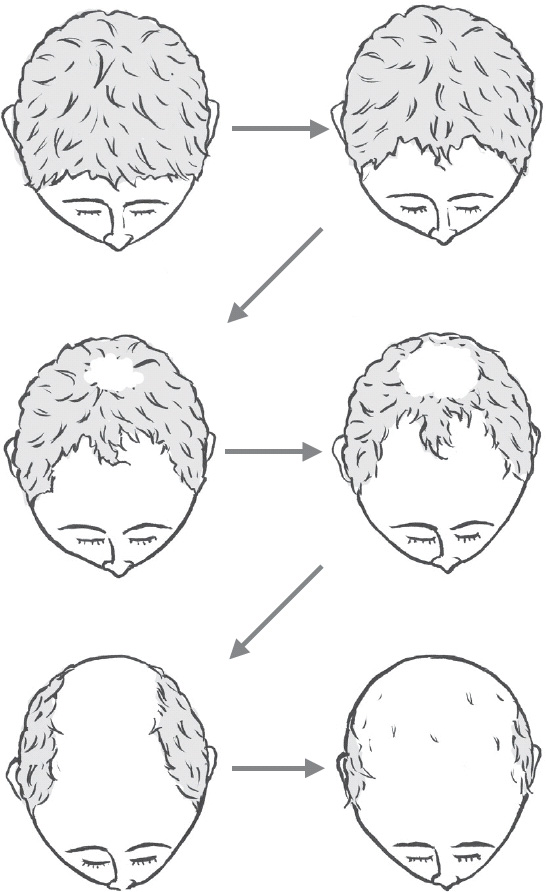Why do men go bald?
Men probably go bald because prehistoric women simply preferred older men.
There are 193 species of monkeys and apes in the world today, but only one of them is hairless: us. This unusual fact led anthropologist Desmond Morris to come up with his famous phrase, “the naked ape.” In fact, humans are not completely naked; we have several patches of hair, most notably on top of our heads. The average person has around 100,000 hairs on his or her head; blondes have finer, more numerous hairs, while redheads have the thinnest hair.
On average you can expect to drop about 62 of these hairs every day, but you can also expect to grow about the same number of new ones. As you get older, this cycle of loss and regrowth changes: Hairs are lost more quickly, while new ones grow more slowly. For a sizeable minority of the population, almost all of them male, the cycle stops completely, and lost hairs are never replaced. The naked ape becomes the bald ape.
One in 6 men goes bald, while 1 in 20 has a receding hairline by the time of his 21st birthday. Why is this?
Certain medications—as well as hormonal changes, illnesses, and even shocks—can cause hair loss in humans, but most men and women lose their hair as a result of genetic causes inherited from both the male and the female sides of the family. But since genes for baldness are so prevalent, that begs the question, what possible evolutionary advantage does baldness provide?
A bald statement
Sociobiologists Frank Muscarella and Michael Cunningham have discovered that women associate bald men with greater social maturity, wisdom, and calmness, and this fits with the general social stereotype that links baldness and wisdom. Muscarella and Cunningham suggest that some of our apewomen ancestors found these “bald” qualities more attractive than the immature aggressiveness of younger, hairier apemen, and this explains why baldness not only survived but thrived.
Some other apes and monkeys also go bald, and in chimpanzees, there seems to be a relationship between social status and baldness. Bald chimpanzees tend to be respected as older males. Perhaps baldness in humans evolved along similar lines.
According to at least one controversial theory, baldness is not really genetic and has nothing to do with evolution. Scientist Armando José Yañez Soler suggests that baldness is the result of the wrong type of haircut, which stops hairs from rubbing against each other, which in turn damages the hair follicles and sets the unfortunate recipient of this pattern on the path to baldness.

